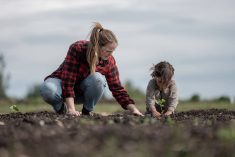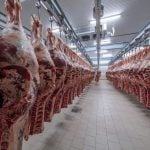“ Farmers can be dismissive of any message about food and farming from a non-farmer.”
— Abra Brynne
Abra Brynne doesn’t hide the fact that Nelson, B. C. is where she feels at home, happy in what is sometimes called Canada’s granola community. But Brynne is also one of the founders of the British Columbia Food Network, an organization devoted to food security and sustainability issues, and she brings a relatively clear-eyed and levelheaded attitude to food issues.
Nor does she pretend she’s someone she isn’t. When she was contacted by Country Guide for this article, the first thing Brynne wanted to make clear is the limited scope of her own agricultural knowledge.
Read Also

Building a farm legacy that outlasts you
A farm’s legacy isn’t just about the land; it’s also about the values and the impact that continue long after the current owner has stepped away.
“I was raised on a small fruit farm in the Okanagan. I know a fair bit about smaller-lot agriculture, especially in B.C.,” she immediately clarified. “I don’t know a great deal about more conventional agriculture, like grain production on the Prairies.”
Brynne was also quick to say she believes the conversation between farmers and consumers needs to be a two-way street, and that neither side is doing a great job of that right now. Farmers, she says, can be dismissive of any message about food and farming from a non-farmer, while consumers are too fast to accept overly simplistic solutions that ignore the complexity of a global food system.
“Sometimes I hear people saying things that are absolutely facile,” Brynne says with a sigh. “I hear people saying we should all eat from farmers’ markets — which is really easy this time of year, but incredibly difficult other times.”
The best solution, she says, is anything that can close that gap between farm gate and plate and start an honest and open dialogue. But that, she says, is a difficult prospect in the current food system, which seems designed to almost perfectly insulate farmers from consumers.
“If there was one thing I could accomplish, it would be to shorten that supply chain and get a greater passing of information between farmers and consumers,” Brynne says.
The challenge will be to find ways to have that conversation without other players in the food chain horning in on it. For example, she points to how organic agriculture has lost some of its edge in recent years as larger and larger retailers have begun stocking the products.
In the organic sector, the result has been more and more players in the middle between farmers and consumers, with less of the value being passed back to farmers and more products being called “organic” that don’t actually address many of the concerns that inspired people to buy organic food in the first place.
Brynne concedes it won’t be an easy road, but says there can be opportunities for commodity growers who are willing to work together to build brands that address some or all of these concerns.
“I’ve heard it called the agriculture of the middle,” Brynne says. “It’s a way forward for those family-scale operations that produce so-called commodities.”
Winnipeg’s John Toone doesn’t talk about supply chains or value-added processing or vertical integration. To him, it boils down to something simpler. He and his wife want to trust the food they’re feeding their family. They want to believe it is safe — and a big part of that equation is the ability to find the answers to any questions they might have.
“When you’re in Safeway and you ask a question about something, the clerk doesn’t have the answer,” Toone says. “That’s not to take away anything from the clerk — the store manager probably doesn’t have the answer either. The system we have doesn’t let me get the answers I want. When I buy from Ian (Smith), I know he has those answers.”














